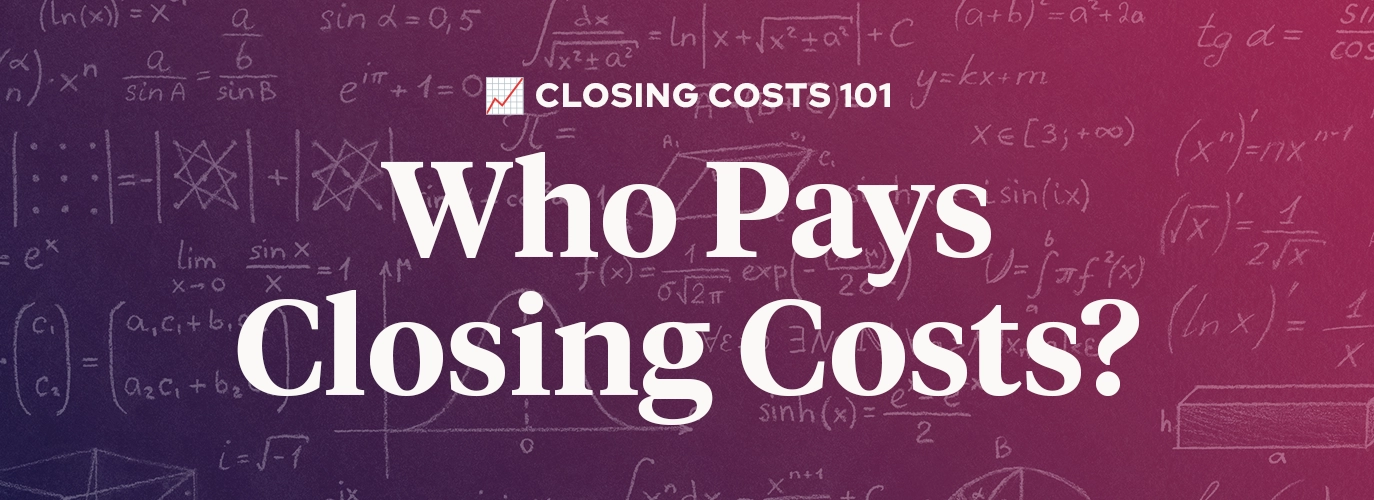Closing costs are the fees and expenses associated with buying or selling a home. They can add up to thousands of dollars, so it’s important to understand what they are, and who pays for what.
What are Closing Costs?
Closing costs are the fees and expenses that buyers and sellers must pay when a real estate transaction is finalized. Closing costs can vary depending on the state, the purchase price of the home, and the type of loan used. They can range from 2% to 5% of the purchase price of the home, and they are typically divided between the buyer and seller.
Who Typically Pays Closing Costs?
In most cases, the buyer is responsible for paying the majority of closing costs. However, there are some variations from state to state. For example, in Texas, the seller is typically responsible for paying the buyer’s title insurance premium.
What Does the Buyer Pay for During Closing?
The buyer typically pays for the following closing costs:
- Appraisal fee: This fee is paid to a qualified appraiser to determine the market value of the home. The appraisal is required by the lender to ensure that the amount of the loan does not exceed the value of the home.
- Title insurance: This insurance policy protects the buyer from any liens or claims on the property title. Title insurance is important because it can uncover hidden defects in the title, such as unpaid mortgages or easements.
- Loan origination fee: This fee is paid to the lender for processing the mortgage loan. The loan origination fee typically ranges from 1% to 2% of the loan amount.
- Credit report fee: This fee is paid to the credit reporting agencies for obtaining the buyer’s credit report. The lender uses the credit report to assess the buyer’s creditworthiness and risk of defaulting on the loan.
- Recording fee: This fee is paid to the county recorder for recording the deed transfer. The deed transfer is the legal document that transfers ownership of the property from the seller to the buyer.
- Inspection fees: Buyers typically pay for a home inspection, which is performed by a licensed inspector to identify any potential problems with the property. Buyers may also pay for additional inspections, such as a termite inspection or a radon inspection.
- Homeowners insurance: Homeowners insurance is required by most lenders. Homeowners insurance protects the buyer from financial losses in the event of damage to the home, such as fire, theft, or weather damage.
- Property taxes (prorated): Buyers typically pay for a prorated portion of the property taxes for the current year. The prorated amount is based on the number of days that the buyer will own the property during the tax year.
Mortgage insurance (if applicable): If the buyer is making a down payment of less than 20% of the purchase price, they will likely be required to purchase mortgage insurance. Mortgage insurance protects the lender in the event that the buyer defaults on the loan.
What Does the Seller Pay for During Closing?
The seller typically pays for the following closing costs:
- Real estate agent’s commission: Real estate agents typically charge a commission of 6% of the purchase price of the home. The commission is split between the buyer’s agent and the seller’s agent.
- Transfer tax: This tax is paid to the state or local government for transferring ownership of the property. The transfer tax typically ranges from 0.5% to 1% of the purchase price of the home.
- Prorated property taxes: Sellers typically pay for a prorated portion of the property taxes for the current year. The prorated amount is based on the number of days that the seller will own the property during the tax year.
- Outstanding liens: A lien is a legal claim against a property that gives the lienholder the right to sell the property to satisfy the debt. Liens can be placed on a property for a variety of reasons, such as unpaid taxes, child support, or mortgage payments. If there are any outstanding liens on the property when it is sold, the seller must pay them off before the sale can be finalized.
- Homeowners association dues: Homeowners association (HOA) dues are fees that homeowners pay to maintain common areas and amenities in a community. HOA dues can cover things like landscaping, snow removal, and maintenance of the pool and clubhouse. If the seller has not paid their HOA dues, they must do so before the sale can be finalized.
- Home warranty (optional): Sellers may choose to purchase a home warranty for the buyer. A home warranty covers the cost of repairs to major appliances and systems in the home for a period of time after closing.
| Closing Cost | Who Pays |
|---|
| Appraisal fee | Buyer |
| Title insurance | Buyer |
| Loan origination fee | Buyer |
| Credit report fee | Buyer |
| Recording fee | Buyer |
| Inspection fees | Buyer |
| Homeowners insurance | Buyer |
| Property taxes (prorated) | Buyer |
| Mortgage insurance (if applicable) | Buyer |
| Real estate agent’s commission | Seller |
| Transfer tax | Seller |
| Prorated property taxes | Seller |
| Home warranty (optional) | Seller |
It is important to note that closing costs can vary. Buyers and sellers should always review the contract terms and consult with a real estate agent or attorney to get an accurate estimate of closing costs. According to federal law, your lender should also give you a good faith estimate of your closing costs.
Title Closing Costs Made Easy: Empora Title’s Calculator
By automating manual processes associated with the title process, all-digital Empora is able to remove fees normally associated with closing. Input a few property-specific details in our free Closing Cost Calculator and you will see an estimated breakdown of expenses, providing insights into the financial obligations for both buyers and sellers.


